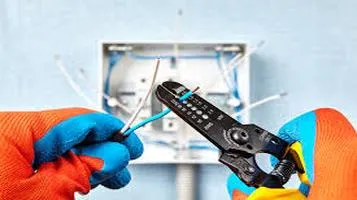Review of Wire Connectors: An Indispensable Tool for Electrical Work
Wire connectors are essential components in electrical systems, designed to securely join two or more electrical wires together. They ensure a reliable and safe connection, preventing electrical shorts and maintaining continuity in circuits. Typically made from plastic or ceramic materials, wire connectors house conductive metals, such as copper or brass, which facilitate the electrical connection. These connectors come in various types, including twist-on, push-in, and crimp connectors, each suited for different applications and wire sizes. Twist-on connectors, commonly known as wire nuts, are widely used in residential and commercial wiring due to their ease of installation and reusability. Wire connectors are crucial for ensuring electrical safety and efficiency, helping to prevent accidents and maintain the integrity of electrical systems.

Wire connectors are an essential component in the toolkit of anyone involved in electrical work, whether they are seasoned professionals, DIY enthusiasts, or hobbyists. These small yet incredibly significant devices play a pivotal role in ensuring secure and reliable electrical connections. In this review, I will delve into the various types of wire connectors, their benefits, potential drawbacks, and overall importance in the realm of electrical work.
Types of Wire Connectors
Wire connectors come in various shapes, sizes, and materials, each designed to cater to specific needs and applications. Some of the most common types include twist-on wire connectors, push-in wire connectors, crimp connectors, and solderless terminals.
1. Twist-On Wire Connectors: These are perhaps the most recognizable type and are often referred to as wire nuts. They are designed for quick and easy installation. Users simply strip the ends of the wires, twist them together, and then screw on the connector. They are available in various sizes to accommodate different wire gauges and are typically color-coded for easy identification.
2. Push-In Wire Connectors: These connectors are incredibly user-friendly. They feature spring-loaded mechanisms that securely hold the wires in place once they are pushed into the connector. This type is particularly favored for its simplicity and the time it saves during installations.
3. Crimp Connectors: Crimp connectors require a crimping tool to attach the connector to the wire. They are known for creating very secure and durable connections. They are commonly used in automotive and industrial applications where a robust connection is necessary.
4. Solderless Terminals: These connectors provide a reliable connection without the need for soldering. They include various types like ring terminals, spade terminals, and bullet connectors, each serving specific purposes and offering different levels of connectivity and security.
Benefits of Wire Connectors
The primary advantage of using wire connectors is the reliability and security they offer. Properly connected wires ensure that electrical systems function safely and efficiently. Here are some key benefits:
1. Safety: Wire connectors significantly reduce the risk of short circuits and electrical fires by providing a secure and insulated connection. This is critical in both residential and commercial electrical systems.
2. Ease of Use: Many wire connectors, especially twist-on and push-in types, are designed for ease of use. They do not require specialized tools or extensive training, making them accessible to a wide range of users.
3. Time-Saving: The simplicity and quick installation process of wire connectors save valuable time, which is especially beneficial in large projects or when working under tight deadlines.
4. Versatility: With the variety of wire connectors available, there is a suitable option for almost any electrical application, from household wiring to automotive and industrial projects.
5. Cost-Effective: Wire connectors are generally affordable, making them a cost-effective solution for ensuring reliable electrical connections without breaking the bank.
Potential Drawbacks
While wire connectors offer numerous benefits, they are not without their potential drawbacks:
1. Size Limitations: Some wire connectors are limited in the range of wire gauges they can accommodate. Using the wrong size can result in poor connections or even damage to the wires.
2. Quality Variations: The market is flooded with wire connectors of varying quality. Low-quality connectors may fail to provide a secure connection, leading to potential safety hazards. It is crucial to choose connectors from reputable manufacturers.
3. Installation Errors: Improper installation, such as not stripping enough insulation from the wires or not securing the connector properly, can compromise the connection's integrity and safety.
Conclusion
In conclusion, wire connectors are an indispensable tool in the realm of electrical work. They offer a multitude of benefits, including enhanced safety, ease of use, time efficiency, versatility, and cost-effectiveness. While there are potential drawbacks, such as size limitations and quality variations, these can be mitigated by selecting the appropriate connectors for the job and ensuring proper installation techniques.
For anyone involved in electrical work, investing in high-quality wire connectors is a wise decision. They ensure reliable and secure connections, ultimately contributing to the overall safety and functionality of electrical systems. Whether you are a professional electrician, a DIY enthusiast, or a hobbyist, wire connectors are an essential component that should never be overlooked.






